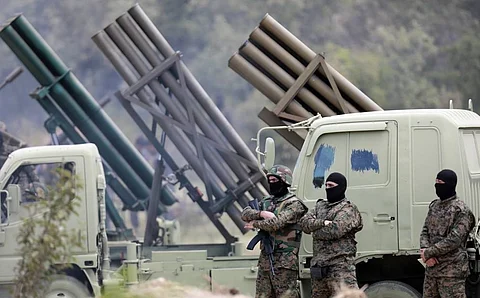

The Lebanese government has taken the unprecedented step of voting to disarm Hezbollah and all other non-state armed groups in the country by the end of the year.
On Thursday, it was revealed that the cabinet held a vote on Tuesday to approve a plan originally proposed by U.S. envoy Tom Barrack, which seeks to establish the state’s monopoly over weapons. The measure is aimed at disarming all non-state actors, most notably Hezbollah, which has operated as a parallel military force in Lebanon for decades.
The vote was marked by a walkout of four Shiite cabinet ministers before the measure was passed. The ministers included representatives from Hezbollah’s parliamentary bloc, its political ally the Amal Movement, and independent Shiite MP Fadi Makki.
In a statement released by Information Minister Paul Morcos, the government declared, “The cabinet agreed to end the presence of all armed groups in Lebanon, including Hezbollah, and approved the aims of a U.S. proposal that would lead to the disarmament of the group and the withdrawal of Israeli forces from Lebanese territory.”
By Thursday evening, large-scale protests had erupted across the country, led by Hezbollah supporters. The demonstrations are being described as the most serious unrest since the 2005 Cedar Revolution, which forced Syria to end its long military presence in Lebanon.
Hezbollah and its allies have long insisted they will not disarm until the Israeli military fully withdraws from all Lebanese territory and the state proves capable of defending its citizens without assistance.
With Hezbollah refusing to comply, it remains unclear how the Lebanese state plans to implement the disarmament plan. The Lebanese Armed Forces are widely seen as incapable of confronting Hezbollah militarily. Analysts suggest that any such confrontation could lead to large-scale defections within the army, potentially splitting the military along sectarian lines.
This development has raised fears of renewed civil conflict. Some speculate that in the event of a breakdown, Syrian forces under President Ahmed al-Sharaa could intervene, possibly siding with Sunni Muslim factions in Lebanon. Last month, Barrack referenced the potential for such a scenario, a statement interpreted by many in Beirut as a warning—or even a threat—that Syria could intervene militarily if Hezbollah refused to lay down its arms.